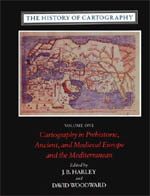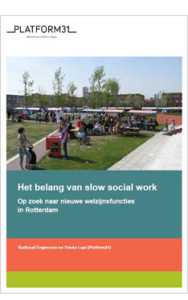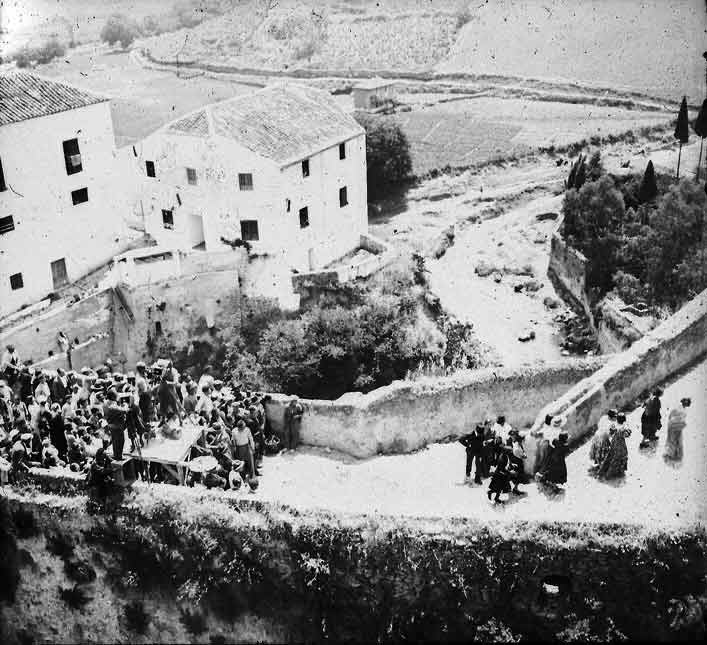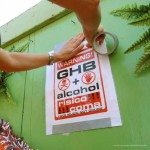The University of Chicago Press ~ The History Of Cartography
 The first volume of the History of Cartography was published in 1987 and the three books that constitute Volume Two appeared over the following eleven years. In 1987 the worldwide web did not exist, and since 1998 book publishing has gone through a revolution in the production and dissemination of work. Although the large format and high quality image reproduction of the printed books (see right column) are still well-suited to the requirements for the publishing of maps, the online availability of material is a boon to scholars and map enthusiasts.
The first volume of the History of Cartography was published in 1987 and the three books that constitute Volume Two appeared over the following eleven years. In 1987 the worldwide web did not exist, and since 1998 book publishing has gone through a revolution in the production and dissemination of work. Although the large format and high quality image reproduction of the printed books (see right column) are still well-suited to the requirements for the publishing of maps, the online availability of material is a boon to scholars and map enthusiasts.
On this site the University of Chicago Press is pleased to present the first three volumes of the History of Cartography in PDF format. Navigate to the PDFs from the left column. Each chapter of each book is a single PDF. The search box on the left allows searching across the content of all the PDFs that make up the first six books.
“An important scholarly enterprise, the History of Cartography … is the most ambitious overview of map making ever undertaken …. People come to know the world the way they come to map it—through their perceptions of how its elements are connected and of how they should move among them. This is precisely what the series is attempting by situating the map at the heart of cultural life and revealing its relationship to society, science, and religion…. It is trying to define a new set of relationships between maps and the physical world that involve more than geometric correspondence. It is in essence a new map of human attempts to chart the world.”—Edward Rothstein, New York Times
“It is permitted to few scholars both to extend the boundaries of their field of study and to redefine it as a discipline. Yet that is precisely what The History as a whole is doing.”—Paul Wheatley, Imago Mundi
“A major scholarly publishing achievement.… We will learn much not only about maps, but about how and why and with what consequences civilizations have apprehended, expanded, and utilized the potential of maps.”—Josef W. Konvitz, Isis
Go to: http://www.press.uchicago.edu/books/HOC/index.html
Papiaments ~ Basis van onze kennis en identiteit
Zaterdag 11 juli 2015 heeft de Stichting Akademia Papiamentu een lezing gehouden met als thema “Basis van ons kennis en identiteit”.
Gedeputeerde Clark Abraham heeft tijdens de opening aangegeven dat papiaments belangrijk is en niet omdat men hiervoor heeft gekozen.
“Op het moment dat een persoon zich uit doet hij dit in het papiaments en hierdoor ben ik ten zeerste blij dat de stichting deze bijeenkomst heeft georganiseerd gezien dit nodig is niet voor anderen maar voor ons zelf”, aldus Abraham.
Verder heeft de gedeputeerde erop gewezen dat papiaments deel vormt van ons identiteit, ons cultuur en ons leven en voor deze reden is het belangrijk.
Lees verder: http://www.bonaire.nu/papiaments-basis-van-onze-kennis-en-identiteit/
Allison Meier ~ The Revolution Has Been Digitized: Explore The Oldest Archive Of Radical Posters
The oldest public collection of radical history completed a digital archive of over 2,000 posters. The Joseph A. Labadie Collection at the University of Michigan Library announced this month that its posters on anarchism, civil liberties, feminism, labor, and other political movements are online for the first time.
“It’s not enough for us to preserve the artifact if people cannot see it,” Julie Herrada, Labadie Collection curator, told Hyperallergic. “Posters are a difficult format because they are fragile and can only withstand so much physical handling, so providing access to these materials while keeping them safe is a complicated process, or it was, until the technology and resources became more readily available to us.”
Read more: http://hyperallergic.com/the-revolution
Slow social work in Rotterdam ~ als antwoord op het tandeloos welzijnswerk
 Typisch Rotterdams zoals ze daar het beleid in de sociale sector weer eens stevig op de schop nemen. Deze keer om plaats te maken voor Welzijn Nieuwe Stijl. Platform 31 wijst in het rapport Het belang van slow social work op de tandeloosheid van de opeenvolgende beleidswisselingen in het sociaal domein. En ziet veel meer in een organische verandering met een bescheiden rol voor professionals. Samenlevingsopbouw nieuwe stijl, slow social work op zijn Rotterdams.
Typisch Rotterdams zoals ze daar het beleid in de sociale sector weer eens stevig op de schop nemen. Deze keer om plaats te maken voor Welzijn Nieuwe Stijl. Platform 31 wijst in het rapport Het belang van slow social work op de tandeloosheid van de opeenvolgende beleidswisselingen in het sociaal domein. En ziet veel meer in een organische verandering met een bescheiden rol voor professionals. Samenlevingsopbouw nieuwe stijl, slow social work op zijn Rotterdams.
Werkelijk elke gemeente in ons land worstelt er mee: de transitie, en de transformatie voor wie hogere ambities heeft met het sociaal domein. Het is work in progress, niemand kan voorzien hoe deze omslag in zorg en welzijn precies zal uitpakken. Wel lopen er diverse onderzoeken, evaluaties, enquêtes en worden er statistische gegevens verzameld. Vaak zijn het dagkoersen, cijfers die nog weinig houvast bieden en bespiegelingen die in het gunstigste geval te bestempelen zijn als educated guesses. Dan zijn er nog de succesverhalen, best practices en handzame lijstjes met tips die instant succes in het vooruitzicht stellen. Wat in veel publicaties onvoldoende tot zijn recht komt is de gelaagdheid van de materie, in het bijzonder de dilemma’s en tegenstrijdigheden die gepaard gaan met zo’n omslag. Het is lastig om deze complexiteit op een toegankelijke manier uiteen te zetten.
De publicatie Het belang van slow social work van Platform31 is een mooi tijdsdocument over het Rotterdamse welzijnswerk waar het roer voor de zoveelste keer om moet. De auteurs Radboud Engbersen en Tineke Lupi doken in beleidsrapporten, spraken over een langere periode met bestuurders, ambtenaren, professionals en vrijwilligers. Ze keken ter plekke en spraken met direct betrokkenen. Hun keuze om buurthuizen en religieuze gemeenschappen onder de loep te nemen, is een gouden greep. Daar leggen ze de Achilleshiel van het welzijnswerk bloot, en sprokkelen er de bouwstenen voor een andere benadering: het slow social work.
Retorische beleidstaal
Rotterdam heeft een traditie hoog te houden als het gaat over sociale uitvindingen: Duimdrop, Opzoomeren, Mensen maken de stad, Perron Nul, de inzet van mariniers, het Kwaliteitspanel, de APK-projectgarage, Topscore, om zo maar eens wat voorbeelden te noemen. Een kwart eeuw geleden werd de spraakmakende Rotterdamse versie van sociaal vernieuwen zelfs tot kabinetsbeleid verheven. Engbersen en Lupi volgen het beleidsspoor van de afgelopen 25 jaar en lichten er een rode draad uit die ondanks alle wisselingen in het beleid, steeds weer de kop op steekt: de rol van de burger als gangmaker voor sociale veranderingen. De jongste beleidsrapporten, – met termen als eigen kracht, zelfredzaamheid, burgerkracht en zelforganisatie -, wijzen opnieuw in die richting. En ook uit dit rapport blijkt dat het een hardnekkige kwestie is om de regie echt in handen te leggen van burgers. De auteurs concluderen : ‘…dat de veranderingen in het welzijnswerk zich vooral op institutioneel niveau tussen de overheid en welzijnsinstellingen afspelen.’ Saillant is dat bestuurders en ambtenaren de mentaliteit van de burgers en het gebrek aan kennis van het beleid, als oorzaken aanwijzen waarom de beleidsvoornemens maar niet aarden. En de burgers die wel actief worden, krijgen het verwijt dat ze zich alleen inzetten voor de eigen groep, in plaats van de buurt in zijn geheel. Zoveel wantrouwen jegens de eigen burgers zegt wel iets over het retorisch gehalte van hun beleidsnota’s. Read more
Gonzo: The Life And Work Of Dr. Hunter S. Thompson
(Trailer)
Magnolia Pictures – HDNet Films
Directed by Alex Gibney. Produced by Alex Gibney, Graydon Carter, Jason Kliot, Joanna Vicente, Allison Ellwood, Eva Orner.
Narrated by Johnny Depp.
Glass negatives ~ Spain 1930s
From a collection of glass negatives: Spain 1930s.
We appreciate any information you may have about when and where exactly this photo was taken.




